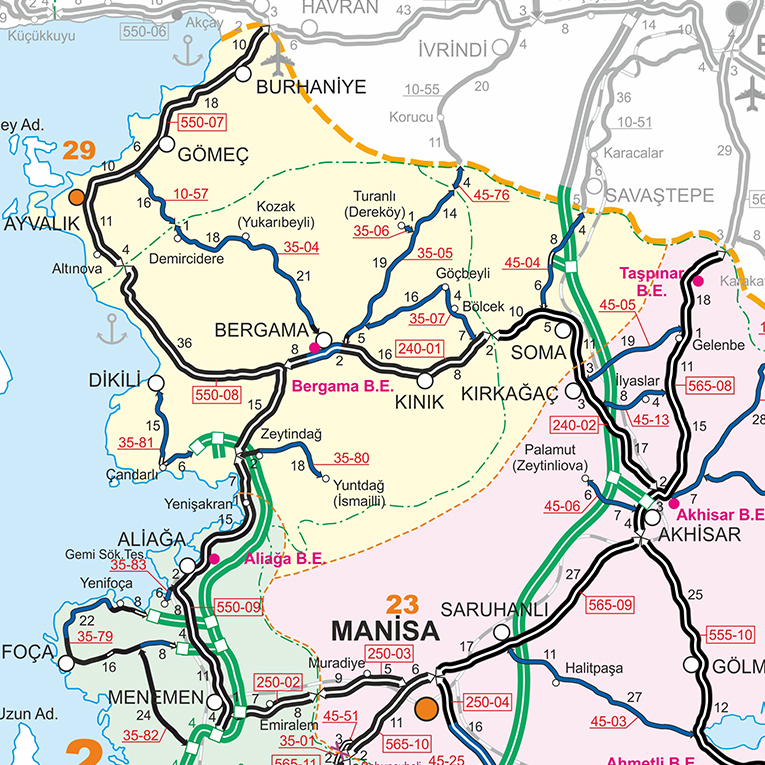Ayvalık on 29 May 1919 and were met with
harassment by local Turkish nationalists. This
resistance continued in the month of July, as
reflected in these telegrams and reports from
the Ottoman 61st Division Commander in
Balıkesir, Col. Kâzım (Özalp).
See TNT reports from this July about the
"Bergama Raid" by Turkish Ottoman and
nationalist forces and "Bergama Raid's
Aftermath", regarding subsequent events.//


Karaağaç, in report 4 below, is just up the coast from
Ayvalık city, upper left, near Gömeç.
1) Telegram dated 8 July 1919 received from the 61st Division
Command:
Since morning, the Greeks' shipborne cannon and land-based batteries
around Ayvalık have been viciously firing at the Murateli and Arablar
villages.
2) Telegram dated 9 July received from the 61st Division Command:
Soma: a Greek detachment made up of an infantry battalion, a
cavalry company and two cannon attacked Cumalı village this
morning, burning down both Cumalı and another village.
3) Report dated 11 July 1919 received from the 61st Division
Command:
a) 10 July 1919, enemy reconnaissance units entered Gömeç and
Turgutlu and set fires there.
b) 10 July 1919, a significant Greek force from Ayazmand (today's
Altınova) and Tıfıllar, occupied Bağyüzü village of Kozak town (20
kilometers north of Bergama).
c) In the course continuing operations over four days, the Greeks
burned and destroyed portions of Murateli, Arablar and another
village.
d) The Greeks have moved and assembled a significant force for
Bergama and Dikili and are using all their land, sea and air military
assets.
4) Telegram dated 17 July 1919 received from the 61st Division
Command:
a) On 16 July, near Ayvalık, Greek forces were forced to retreat
by the 'Kuva-ı Milliye' (Turkish National Independence Army).
Fighting between the Greek forces and the 'Kuva-ı Milliye', which
pursued the Greeks, is continuing in the area of Kerek village.
b) Balıkesir: English control officers happened to be in Karaağaç
yesterday during the fighting. The saw with their own eyes the
Greek attacks and the firing on the Karaağaç area by a Greek 'torpido'
(destroyer), along with the 'Kuva-ı Milliye' counterattack. They
were quite impressed by the capabilities of the Turkish force. In
addition, they were appreciative of the calm attitude of our neutral
(Ottoman) soldiers and understood the propriety and sincerity of
our operations.
//END//

Hiç yorum yok:
Yorum Gönder